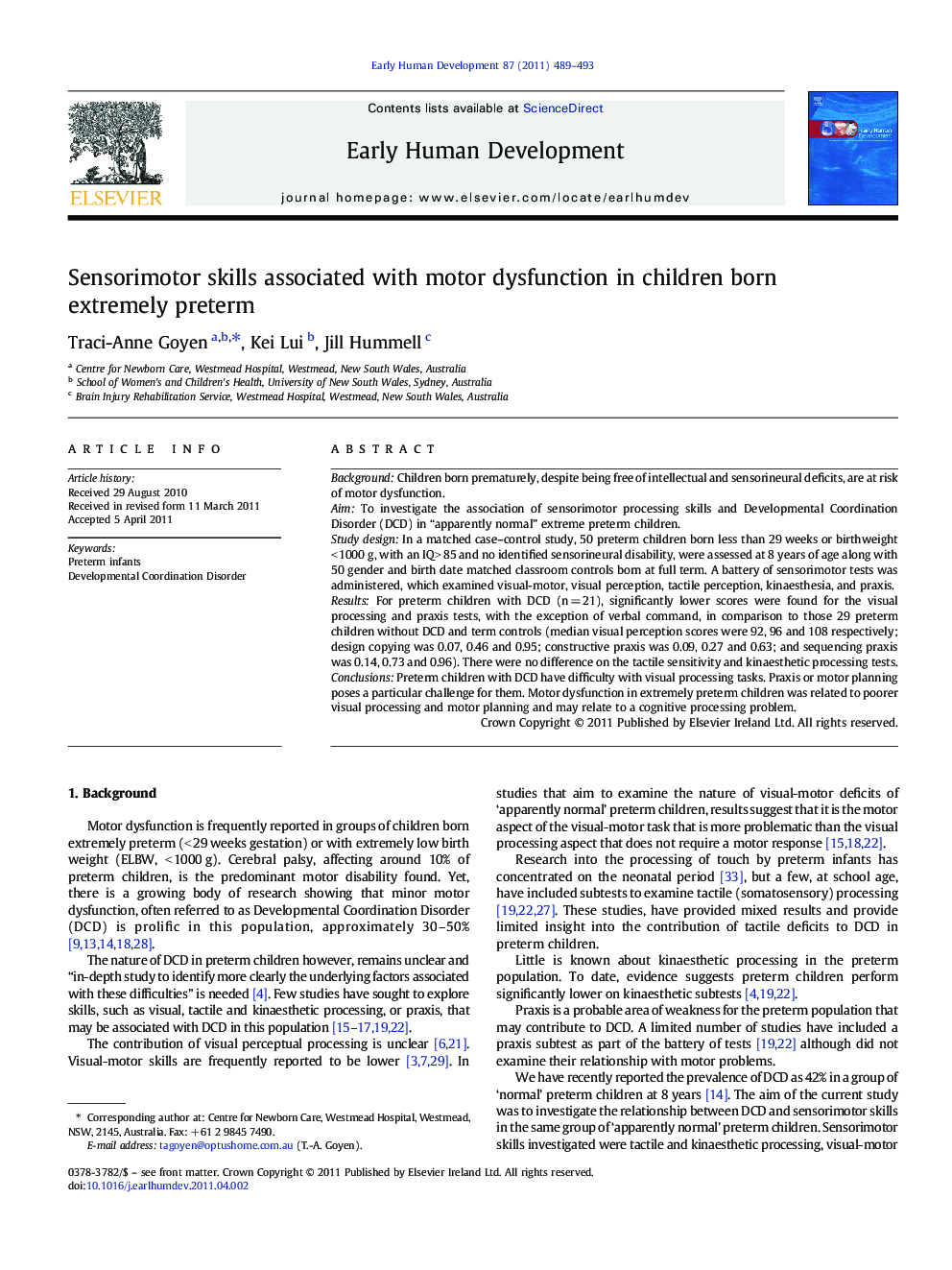| Article ID | Journal | Published Year | Pages | File Type |
|---|---|---|---|---|
| 3917441 | Early Human Development | 2011 | 5 Pages |
BackgroundChildren born prematurely, despite being free of intellectual and sensorineural deficits, are at risk of motor dysfunction.AimTo investigate the association of sensorimotor processing skills and Developmental Coordination Disorder (DCD) in “apparently normal” extreme preterm children.Study designIn a matched case–control study, 50 preterm children born less than 29 weeks or birthweight < 1000 g, with an IQ > 85 and no identified sensorineural disability, were assessed at 8 years of age along with 50 gender and birth date matched classroom controls born at full term. A battery of sensorimotor tests was administered, which examined visual-motor, visual perception, tactile perception, kinaesthesia, and praxis.ResultsFor preterm children with DCD (n = 21), significantly lower scores were found for the visual processing and praxis tests, with the exception of verbal command, in comparison to those 29 preterm children without DCD and term controls (median visual perception scores were 92, 96 and 108 respectively; design copying was 0.07, 0.46 and 0.95; constructive praxis was 0.09, 0.27 and 0.63; and sequencing praxis was 0.14, 0.73 and 0.96). There were no difference on the tactile sensitivity and kinaesthetic processing tests.ConclusionsPreterm children with DCD have difficulty with visual processing tasks. Praxis or motor planning poses a particular challenge for them. Motor dysfunction in extremely preterm children was related to poorer visual processing and motor planning and may relate to a cognitive processing problem.
